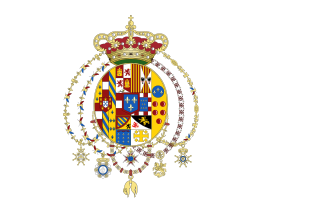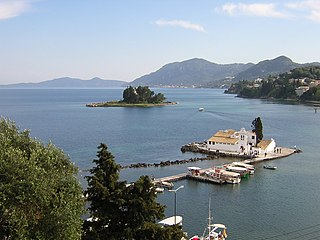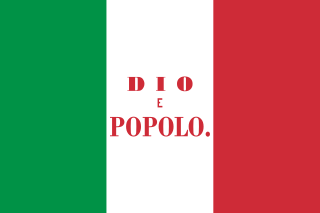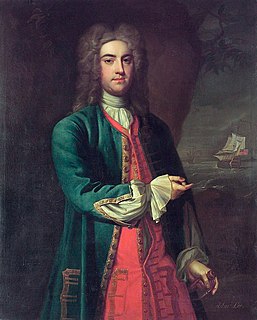Lewis Hippolytus Joseph Tonna (3 September 1812 – 2 April 1857) was an English polyglot and campaigner on behalf of evangelical protestantism.
Evangelicalism, evangelical Christianity, or evangelical Protestantism, is a worldwide, transdenominational movement within Protestant Christianity which maintains the belief that the essence of the Gospel consists of the doctrine of salvation by grace through faith in Jesus Christ's atonement. Evangelicals believe in the centrality of the conversion or "born again" experience in receiving salvation, in the authority of the Bible as God's revelation to humanity, and in spreading the Christian message. The movement has had a long presence in the Anglosphere before spreading further afield in the 19th, 20th and early 21st centuries.

Protestantism is the second largest form of Christianity with collectively between 800 million and more than 900 million adherents worldwide or nearly 40% of all Christians. It originated with the 16th century Reformation, a movement against what its followers perceived to be errors in the Roman Catholic Church. Protestants reject the Roman Catholic doctrine of papal supremacy and sacraments, but disagree among themselves regarding the real presence of Christ in the Eucharist. They emphasize the priesthood of all believers, justification by faith alone rather than by good works, and the highest authority of the Bible alone in faith and morals. The "five solae" summarise basic theological differences in opposition to the Roman Catholic Church.
Contents
Born Liverpool, son of the Spanish vice-consul and consul for the Kingdom of the Two Sicilies, his father died in 1828 while he was a student in Corfu and he was compelled to find employment as an interpreter aboard the Hydra . He served on various ships until returning to England in 1835 to become a director of the Royal United Services Institute. [1]

Liverpool is a city and metropolitan borough in North West England, with an estimated population of 491,500. Its metropolitan area is the fifth-largest in the UK, with a population of 2.24 million in 2011. The local authority is Liverpool City Council, the most populous local government district in the metropolitan county of Merseyside and the largest in the Liverpool City Region.

The Kingdom of the Two Sicilies was the largest of the states of Italy before the Italian unification. It was formed as a union of the Kingdom of Sicily and the Kingdom of Naples, which collectively had long been called the "Two Sicilies".

Corfu or Kerkyra is a Greek island in the Ionian Sea. It is the second largest of the Ionian Islands, and, including its small satellite islands, forms the northwesternmost part of Greece. The island is part of the Corfu regional unit, and is administered as a single municipality, which also includes the smaller islands of Ereikoussa, Mathraki and Othonoi. The municipality has an area of 610,9 km2, the island proper 592,8 km2. The principal city of the island and seat of the municipality is also named Corfu. Corfu is home to the Ionian University.
Tonna married Charlotte Elizabeth Browne, a widow, in 1841 and the two were prolific pamphleteers for the evangelical Protestant cause. [1] When Giacinto Achilli was interned following the fall of the Roman Republic, Tonna was prominent in the campaign for his release and return to England. [2] Following Charlotte's death in 1846, in 1848 he married Mary Anne Dibdin, daughter of Charles Dibdin (the younger). Neither marriage produced children and Tonna died in London. [1]

Charlotte Elizabeth Tonna was a popular Victorian English writer and novelist who wrote under the pseudonym Charlotte Elizabeth. She was "a woman of strong mind, powerful feeling, and of no inconsiderable share of tact." Her work focused on promoting women's rights and evangelical Protestantism, as seen in her book Protection; or, The Candle and the Dog, in which the following characteristic quote appears: "Our greatest blessings come to us by prayer, and the studying of God's word." As Isabella A. Owen remarked in 1901, "She was above all else an anti-Romanist, a most protesting Protestant." Harriet Beecher Stowe wrote of her memoir Personal Recollections (1841): "We know of no piece of autobiography in the English language which can compare with this in richness of feeling and description and power of exciting interest."

Giovanni Giacinto Achilli was an Italian Roman Catholic who was discharged from the priesthood for sexual misconduct and subsequently became a fervent advocate of the Protestant evangelical cause. He is particularly notable for his activities in England and for launching a successful criminal prosecution against John Henry Newman for libel.

The Roman Republic was a short-lived state declared on 9 February 1849, when the government of the Papal States was temporarily replaced by a republican government due to Pope Pius IX's flight to Gaeta. The republic was led by Carlo Armellini, Giuseppe Mazzini, and Aurelio Saffi. Together they formed a triumvirate, a reflection of a form of government seen in the ancient Roman Republic.








